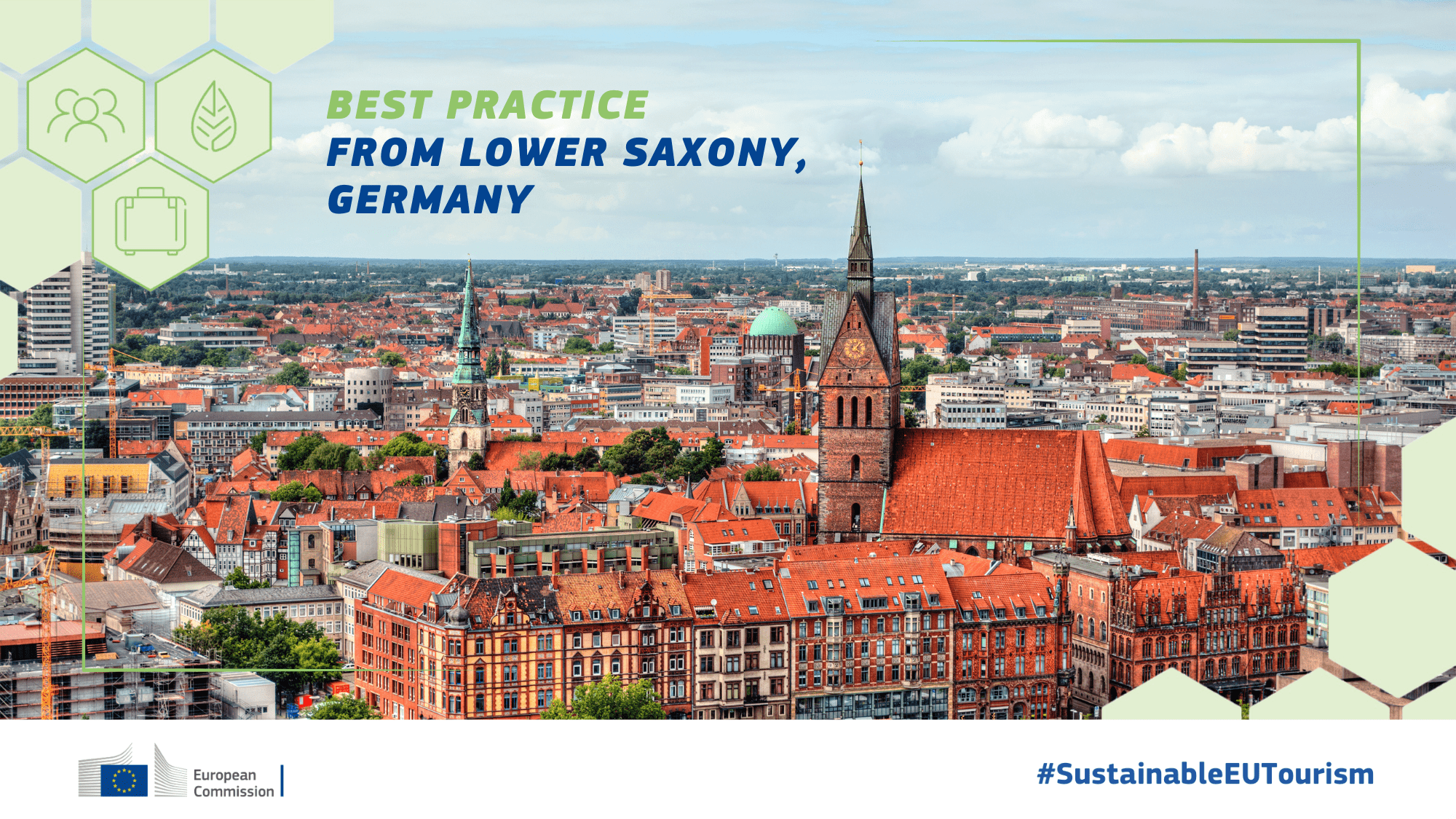Best practices
03 July 2025
Sustainable EU Tourism project - best practice: Lower Saxony
Best practices
03 July 2025
Coastal, maritime and inland water tourism
Cultural tourism
Ecotourism
+31 more
Login / create an account to be able to react

Lower Saxony, Germany, is taking a pioneering role in climate change adaptation for tourism by launching the country’s first state-level initiative to address tourism-related vulnerabilities to climate change. With scientific backing, stakeholder engagement, and practical tools like workshops and funding schemes, the destination is helping its tourism sector adapt to future climate scenarios while improving service quality and encouraging collaboration.
Topics
Germany
Destination Management & Marketing Organisations
Local Authorities
-
Specific types of tourism
-
-
Coastal, maritime and inland water tourism
-
Cultural tourism
-
Ecotourism
-
MICE tourism
-
Urban/city tourism
-
-
Transition Pathway Strategic Areas
-
-
Best practices, peer learning and networking
-
Governance of tourism destinations
-
R&I on climate-friendly tourism
-
-
Business activities
-
-
Activities of amusement parks and theme parks
-
Activities of associations and other organisations supporting tourism
-
Air passenger transport
-
Camping grounds, recreational vehicle parks and trailer parks
-
Events catering and other food services
-
Festivals, cultural and entertainment activities
-
Gardens and nature reserves activities
-
Holiday Housing / Apartments and other short stay accommodation
-
Hotel and similar accommodation
-
Mobile beverage services
-
Mobile food services
-
Museums
-
Operation of historical sites
-
Other
-
Other accommodation
-
Other amusement and recreation activities
-
Other food and beverage services
-
Other holiday reservation services
-
Other tourism transportation activities
-
Rail Passenger transport
-
Recreational and sport activities
-
Restaurants, cafes and bars (Food and Beverage serving activities)
-
Road passenger transport
-
Tour operator activities
-
Travel agency activities
-
Water (sea, coastal and inland) passenger transport
-
Share
Lower Saxony, Germany, has been recognised as a best practice by the Sustainable EU Tourism project for its proactive, research-based strategy to address the impacts of climate change on tourism.
As one of Germany’s most diverse federal states - with both coastal and rural areas - tourism plays a vital economic role, contributing 4.5% to the region’s GDP and accounting for 8% of all jobs. In 2023, the state recorded approximately 45.7 million overnight stays. However, rising sea levels and extreme weather events linked to climate change threaten the region’s tourism assets, while the topic remains abstract for many residents and businesses.
To address this, Lower Saxony became the first German federal state to implement a project focused on climate change adaptation in tourism. Launched in 2021 by the Destination Management Organisation (DMO) and the state government, the initiative was supported by four scientific institutions and included vulnerability assessments, stakeholder dialogues, and the development practical tools tailored to local needs. These tools are publicly accessible via a dedicated website and include the "Adaptation Compass" (a practical guide), "Ideas Exchange" (a collection of successful measures), and "Navigation Aid" (funding information).
Extensive stakeholder engagement included 15 events, surveys, and advisory meetings. The initiative led to concrete follow-up activities, such as funding applications for a drinking water project and the “Nordsee Reisepass”, a coastal tourism promotion initiative.
Lower Saxony case demonstrates how DMOs can effectively integrate climate adaptation into their strategies, using regional networks and practical tools to turn a complex challenge into coordinated, long-term action.
For more details on the key challenges the destination has faced, and the solutions implemented to address them, please refer to the attached document.
#Destination management #Sustainable tourism #Climate action #Stakeholder engagement
Documents
Comments (0)
See also
-
16
Sustainable EU Tourism - Key challenges and best practices
- Categories
- Coastal, maritime and inland water tourism Cultural tourism Ecotourism +64 more
-
5
VINCI: Advancing low-carbon tourism through innovative vocational training
- Categories
- Coastal, maritime and inland water tourism Cultural tourism Ecotourism +41 more
-
10
Green Ideas for Tourism for Europe: Completed initiative for integrating environmental sustainability into vocational education
- Categories
- Coastal, maritime and inland water tourism Cultural tourism Ecotourism +42 more



